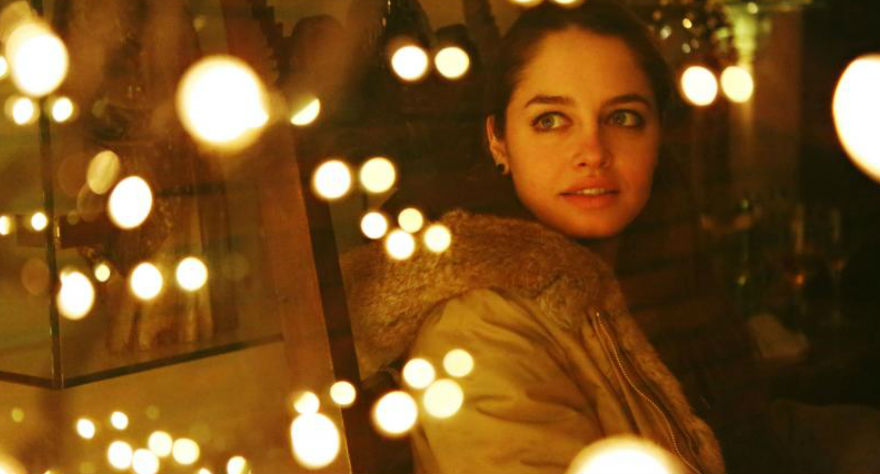
A well-constructed, well-groomed class drama with lots of big ideas that doesn't end up saying much.

A well-constructed, well-groomed class drama with lots of big ideas that doesn't end up saying much.
The poisonous effect of wealth permeates Human Capital, a class drama that studies three characters, from two families, each with a different level of toxicity. Unvarnished and understated, the film–which took the Italian version of the Oscars by storm, winning 7 awards–is a flurry of glancing blows, offering up myriad themes and messages without a one making a solid impact. Utilizing the trendy device of viewing the same period of time from three different perspectives, writer-director Paolo Virzi weaves a sturdy moral tapestry, though the colors are pretty drab.
You’d never know it, considering how at-home the story feels in its setting of Italy in a town just outside Milan, but the film was adapted by Virzi from an American novel by Stephen Amidon, which is set in Connecticut. Divided into chapters, the film opens with Dino (Fabrizio Bentivoglio), a middle-aged, middle-class real estate broker driving his daughter Serena (a strong Matilde Gioli) to her boyfriend’s house (it’s a ridiculously decked-out mansion, actually). She’s dating her strapping classmate Massimiliano (Guglielmo Pinelli), who happens to be the son of Giovanni Bernaschi (Fabrizio Gifuni), a filthy rich fund manager who Dino sees as his ticket into the aristocracy. After a quick game of tennis, Dino manages to insinuate himself into Giovanni’s business by virtually liquidating all of his assets and buying into his hedge fund.
You can see where Dino’s story is headed from the first moment he starts clinging to the slimy Giovanni, who tires of Dino’s mustachioed face quickly. The awkward humor of Dino lighting up every time he sees his new “friend”, while Giovanni rolls his eyes as if to say, “Oh god…here he comes again,” works, but it’s a joke that falls victim to the law of diminishing returns. It’s obvious Dino’s fucked himself: His wife is pregnant with twins, and with no real estate business to fall back on, he’s placed all his eggs in Giovanni’s basket. It’s a scenario he’s too foolish to realize won’t work out for him, and of course, it doesn’t.
Following Dino’s folly, Virzi rewinds and ushers us into the spiritless, insulated life of Giovanni’s wife, Carla (Valeria Bruni Tedeschi). Adrift on a sea of wealthy malaise, we see her start a pet project of renovating a run-down local theater, eventually entering into an affair with a member of her prospective board of directors. Tedeschi is great and sets the tone for the rest of the movie, imbuing the proceedings with a sense of deep despair. The third chapter, which follows Dino’s daughter Serena, is the best one. Here the film takes on the form of a gritty noir and provides several revelations that change the way you look at the chapters that came before, including the introduction of a new character, Luca (Giovanni Anzaldo), a juvenile delinquent who steals Serena’s heart. Giola is so very good as the most virtuous character of the bunch and is the movie’s sole burst of energy. There’s also a fourth chapter that tries to tie everything together, but it illuminates so little and feels so labored and contrived that it’s best to just forget it. (There’s also a series of expository closing titles that cap the film means to act as a poignant coda, but only states the obvious.)
The fulcrum for the three main stories is a hit-and-run accident involving a biker being severely wounded by a car that looks like Massimiliano’s. It’s not a very good fulcrum, though, because it’s almost inconsequential to Dino and Carla’s personal journeys (it affects Serena’s significantly). In fact, there doesn’t seem to be anything you can point to as the one thing holding the Human Capital together. Ideas of human worth, greed, aristocratic absurdity, and sociopolitical dissection are all there, but still, the film doesn’t seem to be saying much of anything. It’s a well-constructed, well-groomed character drama, but when the stakes are so opaque, it’s hard to give a damn about what’s compelling these people to do what they do. The film’s beacon is Giola, who runs away with the movie once she becomes its focus. In her film debut she demonstrates range, dimension, and keen instincts.